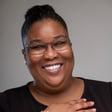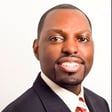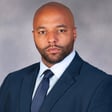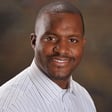
Personal Injury & Criminal Defense Attorney feat. Sean Villery-Samuel (Part 1)
Today’s guest is Sean Villery-Samuel, an attorney practicing Personal Injury Law with experience in Criminal Law. He is a native of Beaumont, Texas, and in May 2009, he earned his law degree from Texas Southern University, Thurgood Marshall School of Law.
Sean was inspired to pursue a legal career by his father, who is an attorney in Beaumont, and a role model for the impact that Sean wanted to have with his career. He grew up watching his father help people, and knew that he wanted to help people in the same way.
Part of his motivation for coming onto the show is to bring awareness to an enriching career like law, that is sorely lacking minority representation.
He’s here to share his unique journey and encourage others. Building a successful legal career requires significant time, resources and energy, but he believes in the power of serving your community through law as a worthwhile endeavor.
Helping others in need is the foundation for his work ethic. And his favorite motivational quote, "The legacy you leave is the life that you live", underscores the importance of making the most of each day and leaving a positive impact.
He was recently promoted to non-Equity Partner at Provost Umphrey Law Firm, where he focuses on fighting for the legal rights of individuals and families, and balancing justice for the working man.













